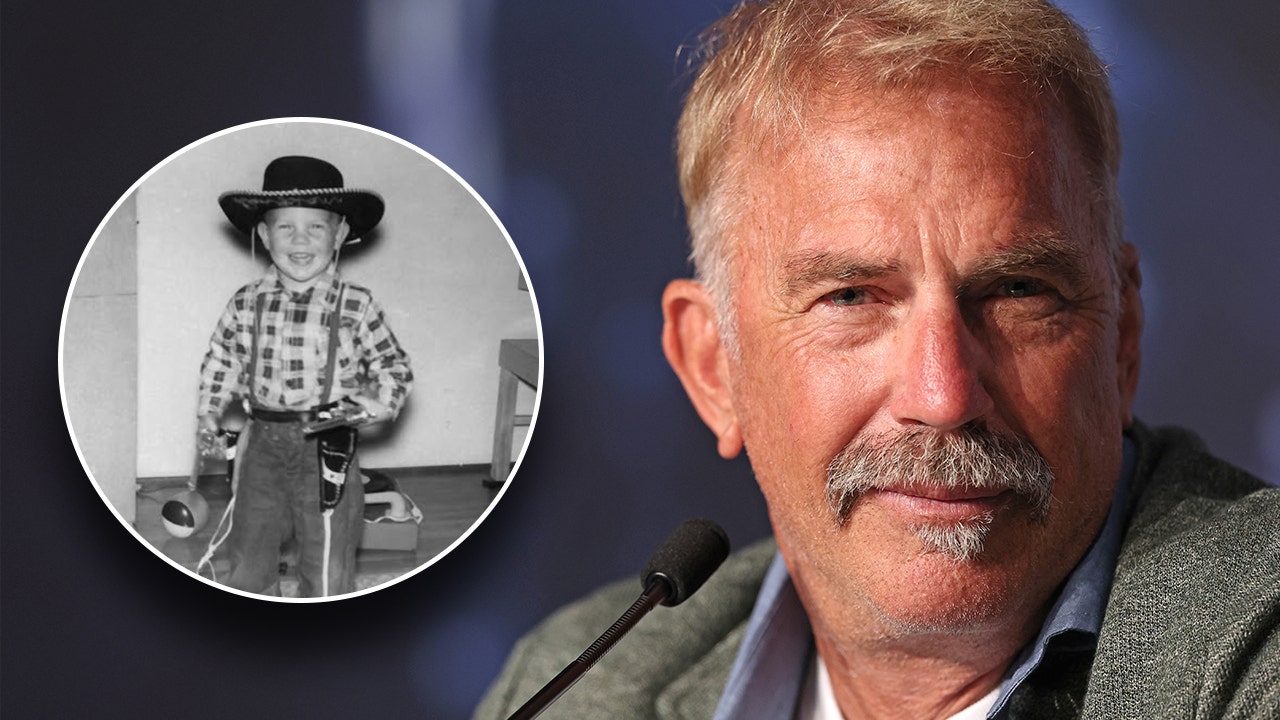As we move out of winter and into spring, the days are becoming longer, but a chill still lingers in the air. In this reading list, monsters are made real, queer love blooms in spite of oppression, and friendships are both nourished and torn apart. Spanning Cameroon to Scotland, these indie authors reinvent the coming of age story, imbue their writing with magic, and turn the mundane into the extraordinary.
Now more than ever it is vital to support indie publishers. Here are 15 to start with:
Tin House: How We Named the Stars by Andrés N. Ordorica
Daniel is a first generation Chicano college student on scholarship at a university on the opposite coast as his family. In the dorms, he is paired with white upper-middle-class Sam. The two have an immediate chemistry, but as closeted young men, they dance around their friendship, each not knowing when—or if—it will become something more. Yet, Daniel and Sam form a strong bond, despite their different backgrounds. As summer approaches, Daniel makes plans to visit family in Mexico, and Sam to his own family, but a rift forms between them. It is in their separation that Daniel begins to understand the unconditional love his family has for him, and while in Mexico he learns more about his gay namesake uncle, who died young. This is a story of first love broken apart by tragedy, written as a love letter. It is also the story of a family breaking through trauma to heal old wounds. A wondrous, emotionally charged novel that centers both love and empathy.
Thirty West: Tender Hoof by Nicole Rivas
A woman and her toddler witness a murder at a grocery store, a woman chills herself in an ice bath so her body feels cold enough to play dead for a fantasy her lover has, and yet another woman acts on her suicidal ideation which her partner does not intervene in. In the world of Tender Hoof, leather sofas are the actual bovines wearing their hides as upholstery, and Aunt Lupita’s breast cancer illuminates the past lives of punk rockers and engenders visionary dreams. Across 18 short stories—each one a study of emotional violence paired with tenderness—Rivas cuts into some of our deepest fears, like abandonment from family, terminal illness, and the uncertainly of the future. With vibrant descriptions and relatable characterizations, Tender Hoof enters the conversation about contemporary literary fiction with memorable short fictions and positions Rivas as a writer to watch.
Regal House Publishing: That Pinson Girl by Gerry Wilson
Four years into World War I, Leona Pinson is unmarried and pregnant on a farm in Mississippi, and the father of her child has just enlisted. She and the man have no formal arrangement, but Leona is sure he will return to her. As the war rages on, Leona must make her way as a young single mother, judged by the people in her small town and shamed even by her mother and brother. Even worse, there is no word from the man who left her pregnant. There is one person on the farm, Luther, the son of a former enslaved person who has a deeply complicated history with Leona’s family, who cares for her in the way of a parent. Yet, Luther, a widower, has his own problems with his own child, and Leona and her family are making things worse. When Leona’s lover returns to town with a new wife in tow, she questions everything she thought she knew—and a revelation from Luther unmoors her even further. A beautiful exploration of family and the power of secrets.
Wandering Aengus Press: Studio of the Voice by Marcia Aldrich
Marcia Aldrich writes with such lucid detail it is easy for readers to imagine oneself in her position. These wide-ranging essays always track back to linked themes of how we interact with and understand different generations. Aldrich addresses family and aging, looks to films of other eras for context, and contemplates both what it means to be a mother and to have one. Studio of the Voice is the rare collection where personal introspection and critical inquiry meet without the writing feeling wrought or academic. Deeply affecting, and wonderfully effective.
Montag Press: Crocodile Tears Didn’t Cause the Flood by Bradley Sides
A matriarchy of vampires run an allium farm while a teenager chafes at the family business, an oprhan runs a roadside attraction featuring his best friend who happens to be a pond creature, and an archeologist unearth an ancient—and perhaps otherworldly—prehistoric bird in the yard. In this collection, monsters are real and when the stork delivers babies, they are disembodied robot components. Yet, rather than being fantastical, Crocodile Tears Didn’t Cause The Flood reads more like hopes and fears made true. Across the stories, there is a longing for connection and family: lament for family lost, hope for reconciliation. Set in the American South, both the gothic and magical realism are at play, but what Sides is at his best when he is writing about the deep wounds of children, intergenerational relationships, and the intersection of communities. Each story offers its own strange beauty.
Soft Skull Press: I Love You So Much Its Killing Us Both by Mariah Stovall
Young Black millennial Khaki Oliver has not spoken to her white former best friend Fiona Davies in ten years: after Khaki left suburban New York to attend college in Los Angeles, their friendship cleaved. While living in suburban LA, Khaki receives an unexpected invitation to a baby shower, celebrating Fiona’s adoption of a Black child, and Khaki spirals into memory. Written with passion and biting observation, the novel explores the intense—and intensely unhealthy—friendship between the women when they were teens. Both struggled with disordered eating, and both kept each other ensnared in secrets. Their relationship feels like how a drowning person will drag their rescuer down, though it is not always clear who is playing the rescuer and who is drowning. While trying to decide if she will attend the shower, Khaki reflects on how deeply the friendship and its loss impacted her.
University of Alabama Press / Fiction Collective 2: Tannery Bay by Steven Dunn and Katie Jean Shinkle
In Tannery Bay, it is always July, and the bay itself is a viscous purple from the waste of the tannery. Yet, the people of Tannery Bay do what people do: create meaningful moments out of their lives. It seems like the loop of summer will be forever, until a spectral figure emerges, in waders, leaving a trail of cockle shells. In an already enchanted town, the woman brings visions and waking dreams, and the residents are spurred to hatch a plan against the town owners, with a local artist at the center. Tannery Bay is a story about a community rallying around art, against injustice, and ultimately understanding their power as a collective. It is also a story that celebrates the force of blood and chosen family. Dunn and Shinkle have achieved the best of co-authorship in terms of a deeply imaginative novel that will delight readers with plot turns. Yet, for all of the inventiveness in the storyline, it is the characters who make this book a page-turner. To read Tannery Bay is to feel alive.
University of Massachusetts Press: The Long Swim by Terese Svoboda
At an annual getaway, a patriarch presides over the family, but cloaked by joking banter is what they really want to say to one another, a marriage is ruined by an affair with a daughter’s friend, a woman is worried that her partner’s two sons—one deeply unstable and the other addicted—will become her legal problem. Across the 44 stories in The Long Swim, Svoboda leans most deeply into the private, unspoken hurts between lovers and family. Though the stories are quite short, each one has a weight to it—and the collection is imbued with a sense of unavoidable doom. For example, readers will not be surprised at the outcome of an escaped circus lion encountering a man and a woman embroiled in an extramarital affair, but that doesn’t mean it’s not satisfying. Svoboda’s world is imaginative, inevitable, and narrated with emotional precision. Equal parts mercurially strange and delightful.
Forest Avenue Press: Chicano Frankenstein by Daniel Olivas
In this retelling of Frankenstein, Faustina Godínez is an ambitious lawyer who begins a romance with a “stitcher,” a derogatory term for people who have been “stitched” together to form bodies that are reanimated and wiped clean of memory. In this version of Mary Wollstonecraft Shelley’s masterpiece, set against a highly charged political backdrop, the intersection of what is possible via scientific breakthroughs collides with capitalism: the re-animated are valued for their work, not their humanity. Faustina’s lover is a highly competent paralegal, as they engage in the mundanity of the everyday, the reanimated man awakens to a broader range of emotion and consciousness, with his past resurfacing. When a doctor crosses an ethical line, Faustina and the man she is becoming partnered with have to reckon with their future together. Richly imagined, Olivas delivers a new classic.
Catapult: These Letters End In Tears by Musih Tedji Xaviere
Bessem lives in Cameroon, a country where being gay is punishable by law and tensions between Christians and Muslims, Anglophone and Francophones, are at a boiling point. As a young university student, she has life-defining relationship with Fatima, until Fatima’s brother, a conservative Muslim, physically assaults them both. Bessem never sees Fatima again, but she’s always thinking about her and looking for closure. 13 years later, Bessem is a university professor. Her best friend is a closeted gay man, and she and Jamal are a support system for one another, and despite the environment of persecution, they have reasons for not leaving their home country. When Bessem sees an old friend of Fatima’s, a fire is ignited in her and she begins a search that will led her to dangerous places. Written as letters that alternate between Fatima and Bessem’s perspectives, this debut by Xaviere is heartbreaking—and gorgeous.
Unnamed Press: But The Girl by Jessica Zhan Mei Yu
When Girl receives a scholarship, she leaves Australia and her tight-knit working-class Malaysian family for a month-long artist residency in Scotland, bookended by stays in London. Intending to take a break from her doctoral dissertation on Sylvia Plath, Girl plans to use the time to work on her postcolonial novel. Under the shadow of the disappearance of a Malaysian Airlines plane, Girl navigates both the subtle and outright racism in academia and the art world, while outwardly performing the role of the grateful immigrant. At the residency, Girl cautiously interacts with her peers, but never quite forms a connection with any of them, despite spending hours sitting for a portrait with one of the artists. Away from her parents and her grandmother, she reflects on the pressure and expectations that come with being a child of working-class immigrants. But The Girl is a force that layers the past and the present to reinvent the coming-of-age novel.
Overcup Press: Wilderness & The American Spirit by Ruby McConnell
From the early periods of American colonialism and up to the present day—including the Covid-19 pandemic—much of Wilderness & The American Spirit focuses on the Applegate Trail as a way to begin to answer the a question: how did we get to where we are now? McConnell traces the route itself, an alternative to the Oregon Trail, filled with spectacular natural beauty and extreme hardship. She chronicles the people traveled it from the past into the modern era, and the environmental destruction caused by the policies of unfettered western expansion. From disease brought by white settlers to indigenous populations, to forests being broken up to build shopping malls, McConnell draws a through line from America’s collective relationship to wild places from everything to the fate of the Donner Party to the CIA’s MKUltra program. Infused with rich details from deep research, Wilderness & The American Spirit is a fascinating read.
Book*hug Press: How You Were Born by Kate Cayley
In How You Were Born, girls play Bloody Mary, an aging professor who has been married six times breaks into the home he is sure is occupied by his double, a holocaust survivor is convinced he has been re-interned when his family moves him to an assisted living facility. Three linked stories tell the story of a gay couple who conceived a daughter via sperm donor, exploring what it means at different points in the journey. These stories are laced with mythology, ghosts, and the magic of childhood imagination, small moments turn into revelations and big events are compressed into concise jewels. Cayley writes with such exactness even the mundane is lush, and the outlandish hyperreal. The collection is threaded together with a deep desire for connection, to love and to be loved. These are narratives that dig deeply into the messy business of living, where characters, despite having to confront their mistakes and accept the cruelty of the world, still find powerful beauty. Masterful.
Autumn House Press: Half-Lives by Lynn Schmeidler
A dead woman becomes pregnant, a vagina is an Airbnb, a woman lives with half of her sibling’s body inside of her, a middle-age woman decides to take advantage of her cultural invisibility to the point that it becomes literal. Schmeidler’s stories have a touch of the gruesome and absurd, but the currents that run through the collection are longing, desire, and outrage. Each story has a different narrator, but there emerges a collective voice for women in different times, points of life, and indeed, material planes. The possibility—and power—in these fantastical situations mirror many of the anxieties of real life: eroding reproductive rights, gendered violence, sexual freedom, and aging. There is also a warning embedded in the narrative about how time slips and bodies change. A wild and original collection.
University of Texas Press: Loose of Earth by Katherine Dorothy Blackburn
K.D. Blackburn’s father is a runner, a former Air Force pilot, and civilian captain for American Airlines. Her mother is a veterinarian. It is somewhat inexplicable, then, in a family headed by parents whose careers hinge so deeply on science, that when the father is diagnosed with colon cancer in 1997, they lean harder on their evangelical faith than medical treatment. In one harrowing moment, Blackburn’s paternal grandfather implores his son to seek care other than prayer and supplements; in another, a pre-teen Blackburn herself—the eldest of five children—believes it is her own lack of devotion that is getting in the way of God healing her father. Underpinning the narrative is Blackburn’s father’s military service, and the prevalence of the use of per- and polyfluoroalkyl substances or PFAS, also known today as “forever chemicals.” Loose Earth is a complicated and beautiful exploration of caring for family in the best ways we know how.



























































